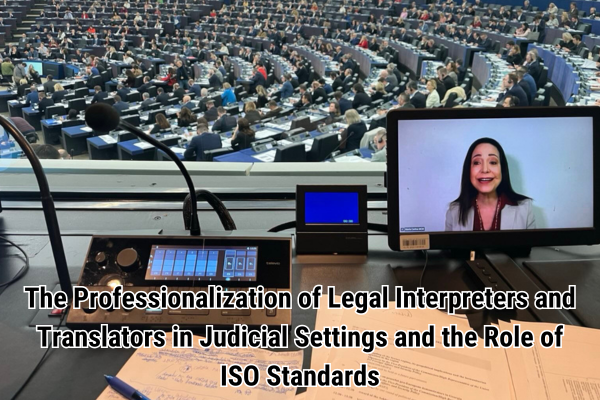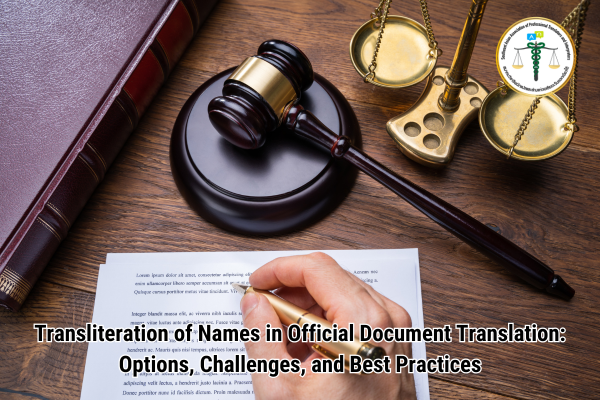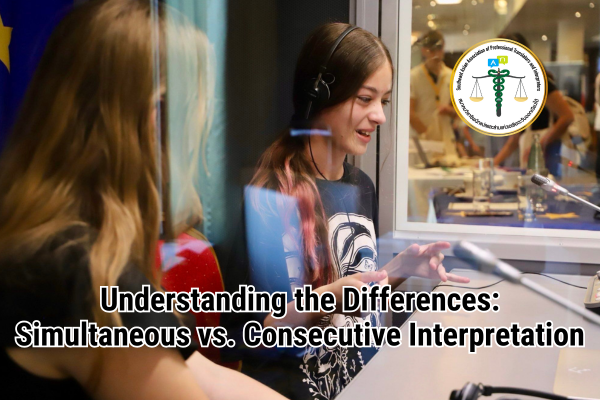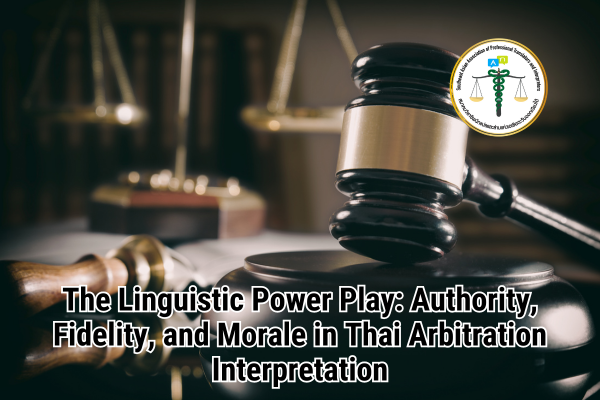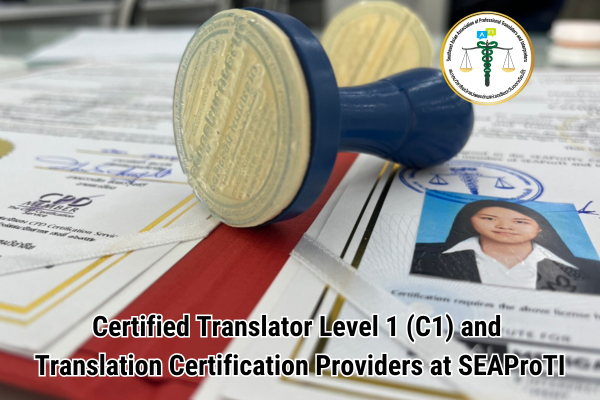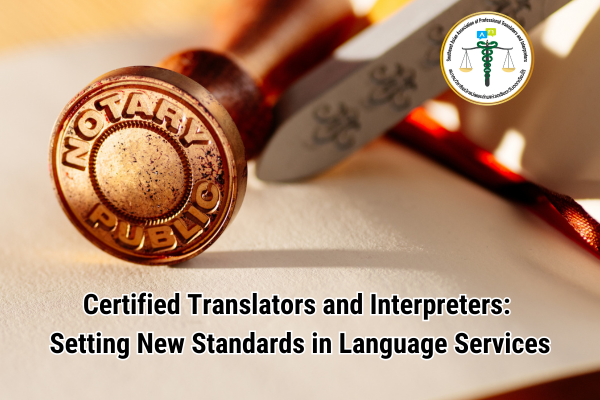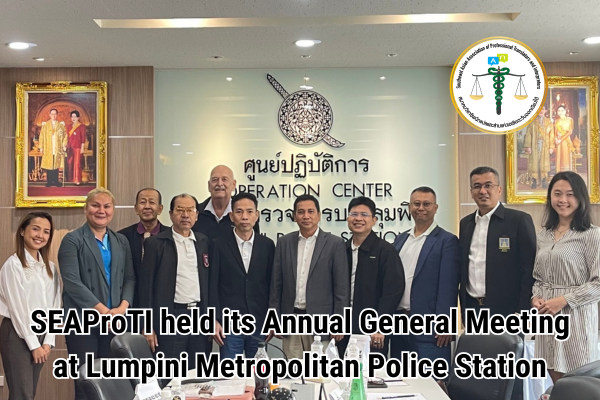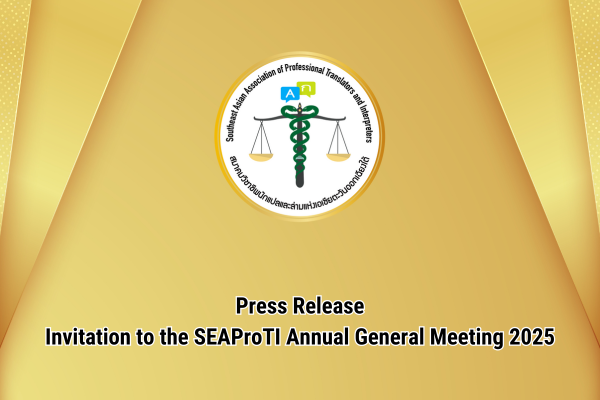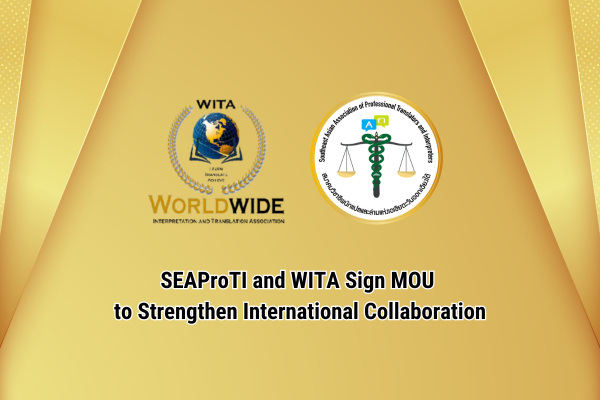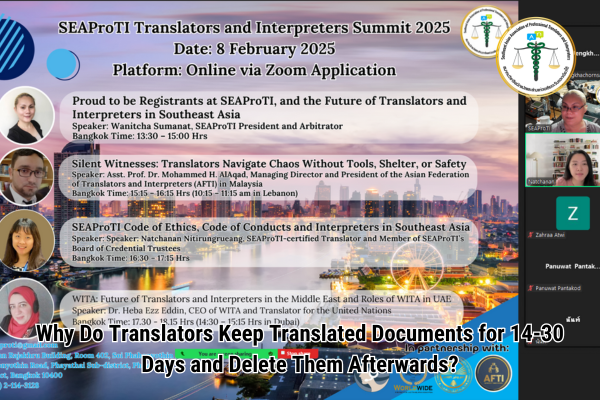The Professionalization of Legal Interpreters and Translators
in Judicial Settings and the Role of ISO Standards
2 February 2025, Bangkok – Legal interpreters and translators play a crucial role in ensuring fair trials and equitable legal proceedings in multilingual jurisdictions. Their work is fundamental in upholding the right to access justice, particularly for individuals who do not speak the official language of a given country. Despite the significance of their role, the profession faces numerous challenges, including a lack of standardization, inconsistent qualifications, and varying remuneration levels across different regions. In response to these issues, various organizations, including the European Legal Interpreters and Translators Association (EULITA), have been advocating for professionalization through the introduction of ISO standards for interpreting services in judicial settings. This article explores the need for professionalization, the challenges faced by legal interpreters and translators, and the importance of implementing ISO standards to ensure quality and accountability in the field.
The Need for Professionalization
Legal translation and court interpreting require specialized knowledge that goes beyond mere linguistic competence. Legal interpreters must possess an in-depth understanding of legal terminology, judicial procedures, and cultural nuances to accurately convey meaning across languages. Any misinterpretation or mistranslation in legal proceedings can have dire consequences, including wrongful convictions, miscarriages of justice, and violations of fundamental rights.
Despite the increasing demand for legal interpreters and translators, particularly in the wake of globalization and migration crises, the profession remains largely unregulated in many jurisdictions. The European Union (EU) has taken steps to address this issue through Directive 2010/64/EU, which guarantees the right to interpretation and translation in criminal proceedings. However, the implementation of this directive varies significantly among Member States, leading to inconsistencies in the quality of legal interpretation services.
Challenges Facing Legal Interpreters and Translators
The field of legal interpreting and translation faces several challenges that hinder professionalization. Some of the key issues include:
-
Lack of Standardized Qualifications: There is no universally accepted certification or qualification for legal interpreters and translators. Some countries require rigorous training and certification, while others allow bilingual individuals with no formal training to work in legal settings.
-
Inconsistent Training Programs: While some universities and professional associations offer specialized training programs, many countries lack structured curricula for legal interpreters and translators. This results in a disparity in skill levels and expertise.
-
Low Remuneration and Poor Working Conditions: Legal interpreters and translators are often underpaid compared to professionals in other legal and linguistic fields. In some jurisdictions, budget constraints lead to cost-cutting measures that compromise service quality.
-
Deprofessionalization Trends: Some governments and agencies have outsourced legal interpreting services to private companies, leading to a decline in standards. The UK Ministry of Justice’s Framework Agreement, for example, caused many qualified interpreters to leave the profession due to drastically reduced pay rates.
-
Lack of Awareness Among Judicial Stakeholders: Judges, lawyers, and law enforcement officials often have limited knowledge about the complexities of legal interpreting and translation. This can result in the undervaluation of professional interpreters and the use of unqualified individuals.
ISO Standards: A Step Towards Professionalization
One of the most significant efforts to enhance professionalization in legal interpreting and translation is the development of ISO standards for interpreting services in judicial settings. The International Organization for Standardization (ISO) defines standards as documents that provide requirements, specifications, guidelines, or characteristics to ensure that services meet quality benchmarks.
The introduction of ISO 20228:2019 established a framework for legal interpreting services, outlining essential requirements such as:
-
Competence and qualifications of interpreters
-
Ethical considerations and confidentiality requirements
-
Best practices for service delivery
-
Continuous professional development (CPD) requirements
-
Guidelines for working conditions and remuneration
ISO standards provide a common denominator for quality assurance, enabling legal professionals and policymakers to set clear expectations for interpreters and translators working in judicial settings.
Benefits of Implementing ISO Standards
The adoption of ISO standards for legal interpreting and translation has several benefits:
-
Improved Quality and Accountability: By setting clear guidelines for qualifications, training, and ethical conduct, ISO standards ensure that only competent professionals provide legal interpreting and translation services.
-
Consistency Across Jurisdictions: Standardization helps bridge the gap between countries with different regulatory frameworks, ensuring a uniform level of service across jurisdictions.
-
Greater Recognition of the Profession: ISO certification elevates the status of legal interpreters and translators, reinforcing their role as essential players in the legal system.
-
Better Protection for Legal Rights: High-quality interpreting and translation services contribute to fair trials and due process, protecting the rights of individuals involved in legal proceedings.
-
Encouragement for Professional Development: CPD requirements within ISO standards promote ongoing learning and skill enhancement, ensuring that legal interpreters stay updated with evolving legal terminology and best practices.
The Role of EULITA and Other Organizations
EULITA has been at the forefront of advocating for professionalization through standardization. The organization has supported several EU-funded projects aimed at enhancing the quality of legal interpreting and translation, including:
-
TRAFUT (Training for the Future): Focused on transposing Directive 2010/64/EU into national laws and ensuring proper training for legal interpreters.
-
QUALETRA (Quality in Legal Translation): Aimed at improving legal translation practices and developing training modules.
-
LIT Search: Created a European database of certified legal interpreters and translators to facilitate access to qualified professionals.
Through these initiatives, EULITA has worked to create awareness among judicial stakeholders, promote CPD programs, and encourage governments to adopt ISO standards.
Future Outlook and Recommendations
While progress has been made, there is still much work to be done to fully professionalize legal interpreting and translation. Some key recommendations include:
-
Mandatory Certification and Accreditation: Governments should implement standardized certification processes to ensure that only trained professionals provide legal interpreting services.
-
Harmonized Training Programs: Universities and professional associations should develop consistent curricula that align with ISO standards and address the unique challenges of legal translation and court interpreting.
-
Increased Institutional Support: Judicial institutions should allocate sufficient resources to ensure that high-quality interpreting and translation services are available in legal proceedings.
-
Stronger Advocacy for Professional Recognition: Organizations like EULITA should continue their efforts to promote the visibility and importance of legal interpreters and translators.
-
Implementation of ISO Standards at the National Level: Governments should integrate ISO 20228:2019 into their legal frameworks to create a standardized, high-quality legal interpreting and translation profession.
Conclusion
The professionalization of legal interpreters and translators is essential for maintaining the integrity of the justice system in multilingual societies. While challenges such as inconsistent qualifications, low remuneration, and deprofessionalization persist, the adoption of ISO standards represents a significant step forward. By promoting standardized training, ethical guidelines, and quality benchmarks, ISO standards can help ensure that legal interpreting and translation services meet the high standards required for fair and just legal proceedings. Stakeholders, including governments, professional associations, and academic institutions, must work together to support the full implementation of these standards, ultimately benefiting both legal professionals and the individuals they serve.
SEAProTI’s certified translators, translation certification providers, and certified interpreters:
The Southeast Asian Association of Professional Translators and Interpreters (SEAProTI) has officially announced the criteria and qualifications for individuals to register as “Certified Translators,” “Translation Certification Providers,” and “Certified Interpreters” under the association’s regulations. These guidelines are detailed in Sections 9 and 10 of the Royal Thai Government Gazette, issued by the Secretariat of the Cabinet under the Office of the Prime Minister of the Kingdom of Thailand, dated July 25, 2024, Volume 141, Part 66 Ng, Page 100.
To read the full publication, visit: the Royal Thai Government Gazette
การยกระดับความเป็นมืออาชีพของล่ามและนักแปลทางกฎหมาย
ในกระบวนการยุติธรรมและบทบาทของมาตรฐาน ISO
ล่ามและนักแปลทางกฎหมายมีบทบาทสำคัญอย่างยิ่งในการรับรองการพิจารณาคดีที่เป็นธรรมและความเสมอภาคทางกฎหมายในเขตอำนาจศาลที่ใช้หลายภาษา งานของพวกเขามีความสำคัญต่อการคุ้มครองสิทธิในการเข้าถึงกระบวนการยุติธรรม โดยเฉพาะอย่างยิ่งสำหรับบุคคลที่ไม่สามารถใช้ภาษาทางการของประเทศที่พวกเขาพำนักอยู่ได้ แม้ว่าหน้าที่ของพวกเขาจะมีความสำคัญมาก แต่ก็ยังมีปัญหาหลายประการที่ทำให้วิชาชีพนี้ขาดมาตรฐานที่ชัดเจน ขาดคุณสมบัติที่สม่ำเสมอ และมีอัตราค่าตอบแทนที่แตกต่างกันไปในแต่ละภูมิภาค เพื่อตอบสนองต่อปัญหาเหล่านี้ องค์กรต่าง ๆ รวมถึง EULITA (European Legal Interpreters and Translators Association) ได้ส่งเสริมการพัฒนาความเป็นมืออาชีพผ่านการแนะนำ มาตรฐาน ISO สำหรับบริการล่ามในกระบวนการยุติธรรม บทความนี้จะกล่าวถึงความจำเป็นในการยกระดับมาตรฐาน ปัญหาที่ล่ามและนักแปลทางกฎหมายต้องเผชิญ และความสำคัญของการนำมาตรฐาน ISO มาใช้เพื่อรับรองคุณภาพและความรับผิดชอบในสายงานนี้
ความจำเป็นในการยกระดับมาตรฐานวิชาชีพ
การแปลทางกฎหมายและการล่ามในศาลต้องการความรู้เฉพาะด้านที่มากกว่าความสามารถทางภาษา ล่ามต้องมีความเข้าใจอย่างลึกซึ้งเกี่ยวกับคำศัพท์ทางกฎหมาย กระบวนการทางศาล และบริบททางวัฒนธรรมเพื่อถ่ายทอดความหมายข้ามภาษาอย่างถูกต้อง หากมีข้อผิดพลาดในการแปล อาจส่งผลกระทบร้ายแรง เช่น การตัดสินที่ผิดพลาด หรือการละเมิดสิทธิขั้นพื้นฐานของบุคคล
แม้ว่าความต้องการล่ามและนักแปลทางกฎหมายจะเพิ่มขึ้นอย่างต่อเนื่อง โดยเฉพาะอย่างยิ่งจากผลกระทบของโลกาภิวัตน์และวิกฤตการณ์ผู้อพยพ แต่วิชาชีพนี้ยังคงขาดการควบคุมในหลายประเทศ สหภาพยุโรป (EU) ได้พยายามแก้ไขปัญหานี้ผ่าน Directive 2010/64/EU ซึ่งรับรองสิทธิในการล่ามและแปลในกระบวนการพิจารณาคดีทางอาญา อย่างไรก็ตาม การดำเนินการตามคำสั่งนี้ยังคงแตกต่างกันไปในแต่ละประเทศสมาชิก ซึ่งนำไปสู่ความไม่สม่ำเสมอในคุณภาพของบริการล่ามทางกฎหมาย
ปัญหาที่ล่ามและนักแปลทางกฎหมายต้องเผชิญ
วิชาชีพล่ามและการแปลทางกฎหมายเผชิญกับอุปสรรคหลายประการที่ขัดขวางการพัฒนาไปสู่ความเป็นมืออาชีพ ปัญหาหลัก ได้แก่:
-
ขาดมาตรฐานคุณสมบัติที่เป็นสากล – แต่ละประเทศมีข้อกำหนดสำหรับล่ามและนักแปลทางกฎหมายที่แตกต่างกัน บางประเทศกำหนดให้มีการฝึกอบรมและการรับรองที่เข้มงวด ในขณะที่บางประเทศยอมรับผู้ที่สามารถพูดได้สองภาษาทำงานได้โดยไม่มีการฝึกอบรมเฉพาะทาง
-
โปรแกรมการฝึกอบรมที่ไม่เป็นระบบ – มหาวิทยาลัยและสมาคมวิชาชีพบางแห่งเสนอหลักสูตรการฝึกอบรมเฉพาะด้าน แต่ยังมีอีกหลายประเทศที่ขาดโครงสร้างหลักสูตรที่เหมาะสม ทำให้ระดับทักษะของล่ามและนักแปลแตกต่างกันไป
-
ค่าตอบแทนต่ำและสภาพการทำงานที่ไม่เหมาะสม – ล่ามและนักแปลทางกฎหมายมักได้รับค่าตอบแทนต่ำเมื่อเทียบกับวิชาชีพอื่น ๆ ในแวดวงกฎหมายและภาษาศาสตร์ บางประเทศมีมาตรการลดงบประมาณที่ส่งผลกระทบต่อคุณภาพของบริการ
-
แนวโน้มการลดคุณภาพวิชาชีพ – บางรัฐบาลและหน่วยงานจ้างบริษัทเอกชนให้บริการล่ามทางกฎหมาย ซึ่งนำไปสู่การลดคุณภาพ เช่น กรณีของ UK Ministry of Justice ที่ทำให้ล่ามที่มีคุณภาพจำนวนมากออกจากอาชีพเนื่องจากอัตราค่าตอบแทนที่ลดลงอย่างมาก
-
ขาดความตระหนักรู้ในหมู่ผู้มีส่วนได้เสียในกระบวนการยุติธรรม – ผู้พิพากษา ทนายความ และเจ้าหน้าที่บังคับใช้กฎหมายมักมีความเข้าใจจำกัดเกี่ยวกับความซับซ้อนของการล่ามและแปลทางกฎหมาย ซึ่งอาจนำไปสู่การใช้บุคคลที่ไม่มีคุณสมบัติที่เหมาะสม
มาตรฐาน ISO: ก้าวสำคัญสู่ความเป็นมืออาชีพ
หนึ่งในความพยายามสำคัญในการพัฒนามาตรฐานสำหรับการล่ามและแปลทางกฎหมายคือการพัฒนามาตรฐาน ISO 20228:2019 ซึ่งเป็นกรอบการทำงานที่กำหนดข้อกำหนดที่สำคัญ เช่น:
-
คุณสมบัติและความสามารถของล่าม
-
จรรยาบรรณและข้อกำหนดด้านความลับ
-
แนวทางปฏิบัติที่ดีที่สุดในการให้บริการ
-
ข้อกำหนดสำหรับการพัฒนาวิชาชีพอย่างต่อเนื่อง (CPD)
-
แนวทางเกี่ยวกับสภาพการทำงานและค่าตอบแทน
การใช้มาตรฐาน ISO จะช่วยให้เกิดแนวทางปฏิบัติที่ชัดเจนและส่งเสริมการพัฒนาวงการล่ามและแปลทางกฎหมายให้เป็นที่ยอมรับในระดับสากล
บทสรุป
การพัฒนาความเป็นมืออาชีพของล่ามและนักแปลทางกฎหมายเป็นสิ่งสำคัญสำหรับการรักษาความเป็นธรรมของระบบยุติธรรมในสังคมพหุภาษา แม้ว่าจะมีความท้าทายหลายประการ แต่มาตรฐาน ISO 20228:2019 ถือเป็นก้าวสำคัญที่สามารถช่วยให้เกิดมาตรฐานที่ชัดเจน และช่วยยกระดับคุณภาพการให้บริการ หน่วยงานภาครัฐ สมาคมวิชาชีพ และสถาบันการศึกษาควรร่วมมือกันเพื่อสนับสนุนการดำเนินมาตรฐานนี้ให้ครอบคลุมทุกประเทศ ซึ่งจะเป็นประโยชน์ต่อทั้งผู้เชี่ยวชาญในสายงานนี้และบุคคลที่ต้องพึ่งพาบริการล่ามและแปลทางกฎหมาย
เกี่ยวกับนักแปลรับรอง ผู้รับรองการแปล และล่ามรับรองของสมาคมวิชาชีพนักแปลและล่ามแห่งเอเชียตะวันออกเฉียงใต้
สมาคมวิชาชีพนักแปลและล่ามแห่งเอเชียตะวันออกเฉียงใต้ (SEAProTI) ได้ประกาศหลักเกณฑ์และคุณสมบัติผู้ที่ขึ้นทะเบียนเป็น “นักแปลรับรอง (Certified Translators) และผู้รับรองการแปล (Translation Certification Providers) และล่ามรับรอง (Certified Interpreters)” ของสมาคม หมวดที่ 9 และหมวดที่ 10 ในราชกิจจานุเบกษา ของสำนักเลขาธิการคณะรัฐมนตรี ในสำนักนายกรัฐมนตรี แห่งราชอาณาจักรไทย ลงวันที่ 25 ก.ค. 2567 เล่มที่ 141 ตอนที่ 66 ง หน้า 100 อ่านฉบับเต็มได้ที่: นักแปลรับรอง ผู้รับรองการแปล และล่ามรับรอง


